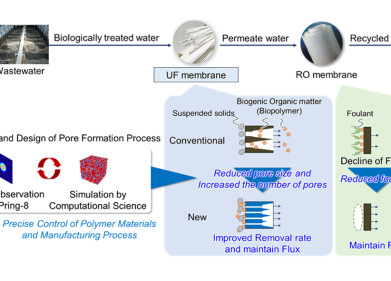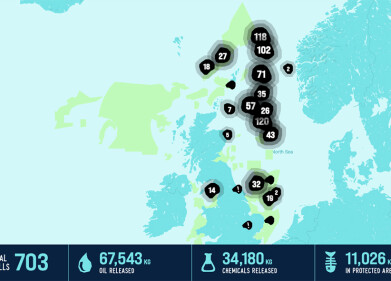Water/Wastewater
Why Was Greece Fined for Water Pollution?
Apr 02 2020
Greece has been fined the sum of €3.5 million for failing to address the problems of water pollution caused by agriculture in the country. The ruling was made by the European Court of Justice last month, who stated that the European Commission was correct in its assessment of Greece’s unpardonable inactivity on the issue.
The judgment is a blow for Greece, which has spent the last few years protesting its innocence in the attempt to avoid a pecuniary penalty. It’s just the latest in a string of reprimands which the southern European country has received from the EU, with it also under fire for its dismal track record on air pollution and its insufficient protective measures against invasive species.
A long-standing dispute
The case stretches back several years, after the EU Court of Justice ruled in 2015 that Greece must control the influx of agricultural run-off into its waterways, since the excess of nitrates was having an adverse effect on the flora and fauna dwelling there. The Evros River and the Plain of Thessaly were just two of the areas deemed to be at risk and Greece was required to declare them vulnerable and instigate a clean-up plan within one year of the declaration.
Greece was given until December 2017 to fulfil their obligations, but failed to do so. As a result, the European Commission appealed to the ECJ in April of last year, demanding that the country pay both a lump sum and a penalty fee. After considering Greece’s defence that it had introduced the necessary legislation shortly after the Commission’s intervention, it was decided to waive the penalty fee but impose a lump sum fine of €3.5 million.
Too much of a good thing
Greece’s main transgression is its failure to manage ammonia levels in an aquaculture environment. By allowing slurry and fertilisers from agricultural crops and fields to infiltrate rivers, lakes and other bodies of water, the Greek authorities let nitrates accumulate. According to EU law, the maximum threshold for nitrate concentration in such waterways is 50 milligrams per litre.
Above that figure, the excess nitrates can have a severely debilitating effect on the quality of the water and the ability of organisms to survive in it. That’s because the overabundance of nutrients encourages the growth of algal blooms, which consume all of the water’s oxygen and block out the sunlight from reaching beneath the waves. Since many plants and animals depend on both elements for their survival, they can be quickly killed off.
A laundry list of complaints
The ruling against Greece is only the most recent of a number of legal wrangles with the EU in which they’ve become embroiled in recent years. In November 2019, the EU encouraged a number of its member states – including Greece – to update their legislation on invasive and alien species, in order to bring it into line with the bloc’s standards.
Meanwhile, Greece is one of three countries (alongside Malta and Romania) which has been reprimanded for its inactivity on air quality control. The trio had been requested to publish and implement their first national air pollution control programmes by April of last year, but to date, none of the three have done so. They were issued with a formal notice to comply in February 2020 and were given until the end of this month to act.
Events
Mar 11 2025 Amsterdam, Netherlands
Mar 12 2025 Montreal, Canada
Mar 18 2025 Expo Santa Fe, Mexico
Mar 18 2025 Moscow, Russia
Mar 19 2025 Manila, Philippines














